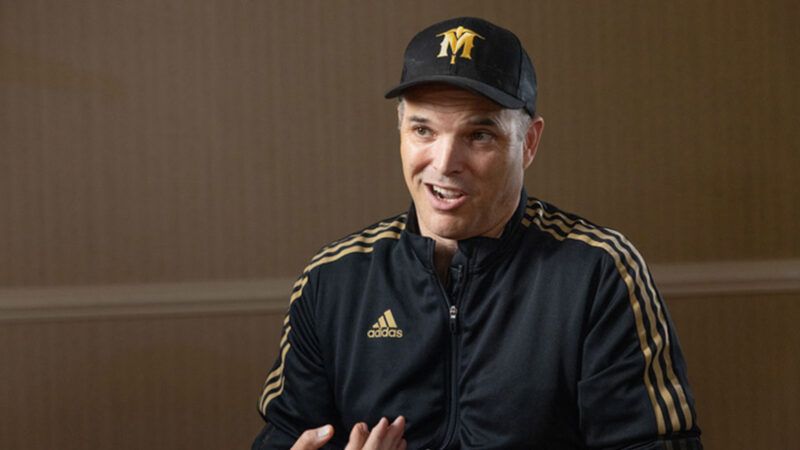Matt Taibbi on the Twitter Files, Julian Assange, and Donald Trump
"After Trump, everybody's tolerance for exploring different points of view kind of dried up," says the star Substack writer.

Matt Taibbi is the author of four New York Times bestsellers. As Rolling Stone's campaign reporter in 2016—and an early critic of how the mainstream media covered allegations of Russian interference in the presidential election—he concluded that political journalism was hyper-focused on the "pursuit of getting rid of Donald Trump."
When Taibbi started publishing his work on Substack in 2020, he quickly became one of the platform's most popular writers. He also was the first journalist to write about the Twitter Files, a collection of behind-the-scenes discussions revealed after Elon Musk bought the social media platform. Reason's Nick Gillespie sat down with Taibbi at FreedomFest in Memphis, Tennessee, in July to talk about the Twitter Files, WikiLeaks founder Julian Assange, Donald Trump, and more.
Q: What were you expecting to find when you started the Twitter Files?
A: I went into the Twitter Files with a very old-school, antiquated kind of First Amendment conception of what we might find or what questions we might answer. We discussed with Twitter's management the idea of focusing on the suppression of the Hunter Biden story, mainly because Mark Zuckerberg had given an interview and had testified before Congress in which he suggested that the FBI had tipped him off about that story.
I thought if there were those kinds of communications with Twitter, this might be where we found them.
Q: Can you give us an example of something you found in the Twitter Files?
A: The Aspen Institute tabletop exercise, which was technically not set up by the government. It was set up by the Aspen Institute, which is funded by the government in collaboration with some academic institutions. They all got together before the release of the Hunter Biden story. They were briefed by current and former government officials who talked about the possibility that a hack and leak story involving Hunter Biden and Burisma might come out and they kind of war-game the possibility of what to do about that story.
A month later, that story happened. Now, for me, if I had been in that room and that story actually happened a month later, I would feel obligated to do a story about that tabletop exercise. But these people had an off-the-record arrangement with everybody they were in the room with. They kept quiet.
Q: What led to your exit from Rolling Stone in 2019?
A: When I was there in the early 2000s and mid-2000s, the owner, Jann Wenner, was absolutely against a lot of the stuff that I wrote, because I was reporting on financial corruption that didn't look good for the Democratic Party sometimes. But he was cool with it. That was a rare thing.
But that started to change. After Trump, everybody's tolerance for exploring different points of view kind of dried up. I didn't leave because I was pressured or pushed out the door. It was really more that I had a sense that there was something more lucrative and more rewarding out there on the independent front.
Q: Have you been surprised by the mainstream media's response to Julian Assange?
A: There's never been an issue of factuality, not that I know of, with WikiLeaks. But the amazing thing about the reaction the journalists have had since the indictment is the total inability to to see how this relates to the future of journalism. I mean, they're threatening this guy with 175 years in prison for doing basically the same thing that every national security journalist does every day.
Q: What impact did Donald Trump have on political journalism?
A: I think one of the main things we found in the Twitter Files was that if it's not Trump, it's something. There's always demon X that they're warning audiences away from. And they always come up with a word that is sort of nonnegotiable code for threat. So it's anti-vaxxer, right? Or domestic violent extremist or insurrectionist or anything along those lines.
This interview has been condensed and edited for style and clarity. A video can be found here.


Show Comments (64)